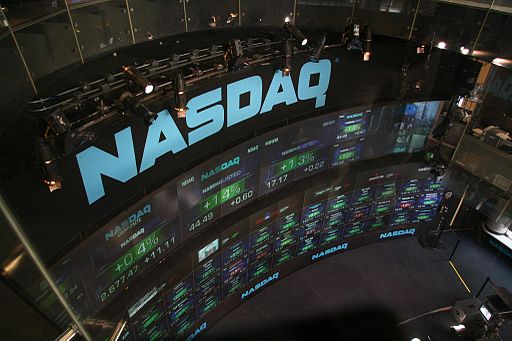|
What’s behind the 2.54% drop in the Dow Jones Industrial Average on Friday, Feb. 2, 2018? It is a story of bubbles, according to former Federal Reserve chairman Alan Greenspan. On Bloomberg Television on January 31, 2018, Greenspan said quite clearly, “There are two bubbles. We have a stock market bubble, and we have a bond market bubble.” Here are 7 Factors That Contributed to the 666 Point Dow Drop on Feb. 2, 2018 1. Greenspan’s Bubble-speak certainly sparked the sell-off, although that wasn’t the only issue. The trouble in the bond market "will eventually be the critical issue," according to Greenspan. He is also very concerned about the trillion dollar deficit that accompanied the Tax Bill, and the massive U.S. public debt that currently stands at $20.5 trillion. 2. Apple, the largest corporation in the Dow Jones Industrial Average with a market valuation of $853.51 billion, is down more than 10% from its 52-week high. The slide started on January 23, 2018. Insiders and institutions have been net sellers. Apple’s sales growth was 12.20%, with 21% profit margins, so the sell-off has more to do with investor sentiment than earnings’ issues. 3. Warren Buffett basically said the same thing as Greenspan on Bloomberg TV on November 14, 2017, explaining that he has $100 billion sitting on the sidelines because stocks and bonds are overpriced. 4. Don’t Believe the “Bonds Are Starting To Look Better” Story. A lot of media pundits are reporting that rising interest rates make bonds look better than stocks to investors. Be careful of this. Heed the warnings of Alan Greenspan and Warren Buffett, and learn why bonds are risky and expensive.
5. VIX. The VIX, The Chicago Board of Exchange’s Volatility Index spiked to almost 50, after spending most of the last six months hovering at around 10. This Index is often called the “fear gauge” because when investors are confident, it is low, and when investors are worried, it soars. 50 is the highest, by far, that VIX has been since the Great Recession. An all-time high of 79 was hit on Oct. 24, 2008. (October 24, 2008 was the day that the International Monetary Fund bailed out Iceland. Lehman Bros. bankruptcy was on September 15, 2008. Bear Stearns’ bailout/takeover was on March 16, 2008.) This should sound an alarm bell for you because having a drop this severe and a VIX this high means that investors are jumpy. When a real issue comes up, and they always do, then the drop could be more severe and more sustained. 6. The “Memo.” The VIX jumped 29% on Feb. 2, 2018, the day that the “Memo” was released by Congressional Republicans. No matter which side of the political debate you side with, investors want to know that the economic challenges of today are going to be prudently dealt with. Wall Street doesn’t like political instability, which is why there was such a negative reaction to this event. 7. General Electric. GE continued it’s stock slide, slamming down to $15.64/share, which is half the value it was a year ago. The SEC’s investigation into GE’s accounting, which was announced on Jan. 24, 2018, has contributed to the weakness recently, though the real culprits were the slashed dividends and Warren Buffett pulling out of his stake in General Electric. Prior to August 15, 2017, Berkshire Hathaway held 10.6 million shares of GE, with a market value of approximately $265 million. Buffett managed to get out before GE slashed its dividend in half. What is NOT a Factor in the Sell-Off: Fear of Rising Interest Rates. I’m seeing a lot of TV anchors try to position Friday’s devastating drop as being caused by rising interest rates. This focus is erroneous. However, it allows the debate to be on interest rates, instead of the real issues of over-valuation and bubbles which Greenspan and Buffett are quite boldly and clearly talking about publicly. Yes, interest rates are rising, with a goal of having the Federal Funds rate at 3% by 2020. That is still historically low, though higher than today’s rates. Yes, higher interest rates will likely impact the money that we pay on our federal debt. However, the big story on our federal debt is that it just keeps growing and growing and growing, which makes Americans less confident that their politicians are solving the real problems that Americans face. The sell-off on Friday was a “smart money” sell-off. Just like Warren Buffett, the smart money isn’t selling stocks to move into bonds. Stocks are being sold and moved into cash to sit on the sidelines. While cash is not the best place for all of your assets, getting at least a percentage equal to your age safe, in FDIC-insured cash, is a good start toward protecting yourself. I wouldn’t stop there because, in truth, you need to make sure that you:
Most people don't realize that 1/3 of Americans with a credit score are in debt collections. Personal debt is higher than it has ever been, as is public debt, corporate debt, municipal debt and loans. Asset prices are overpriced, from real estate, stocks and bonds and more. There is a lot to be concerned about in the economy – making it ESSENTIAL to get the ABCs of Money that we all should have received in high school... Now. Your best next move is to get informed and educated. Call 310-430-2397 or email [email protected] to learn more about our Valentine’s Retreat in the beautiful beach town of Santa Monica, California. We only have 2 seats still available. Comments are closed.
|
AuthorNatalie Pace is the co-creator of the Earth Gratitude Project and the author of The Power of 8 Billion: It's Up to Us, The ABCs of Money, The ABCs of Money for College, The Gratitude Game and Put Your Money Where Your Heart Is. She is a repeat guest & speaker on national news shows and stages. She has been ranked the No. 1 stock picker, above over 830 A-list pundits, by an independent tracking agency, and has been saving homes and nest eggs since 1999. Archives
July 2024
Categories |









 RSS Feed
RSS Feed